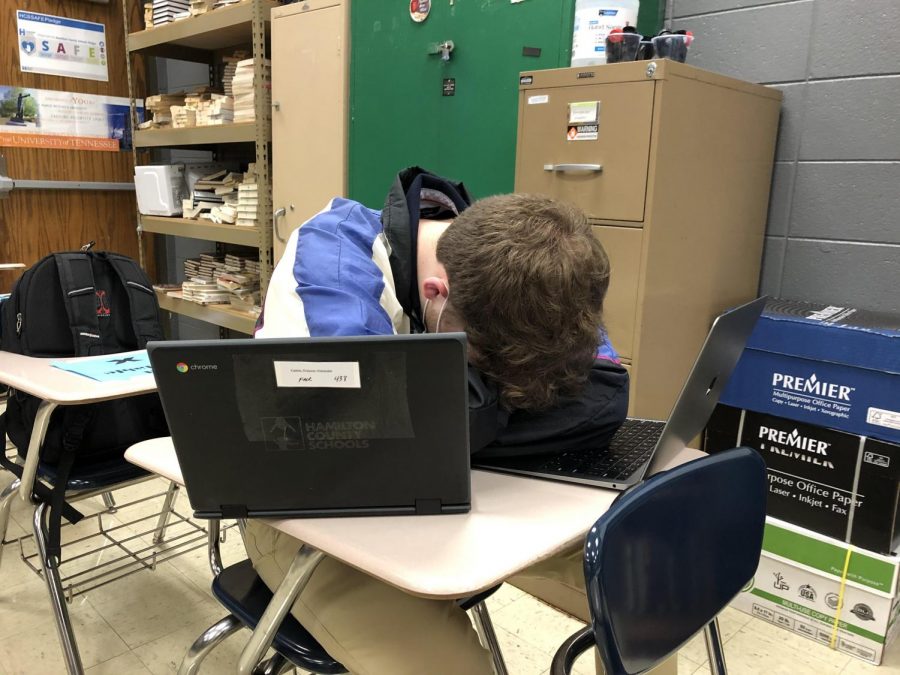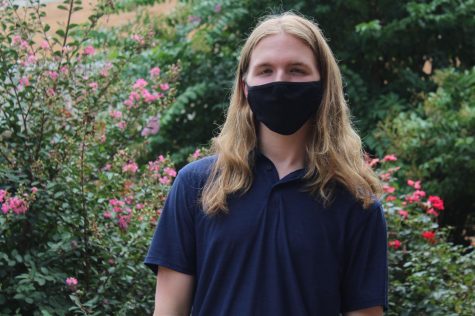The Gray Area: How to Cure a Lack of Motivation
CURING A LACK OF MOTIVATION — Senior Grayson Catlett falls asleep at his desk, tired of his schoolwork.
February 18, 2021
In the age of COVID-19, avolition has almost become the norm for students. Virtual classes have led to a sense of detachment from productivity, as students are left in their own environment and their own devices instead of a building that is primed for education. To add on to that, the culmination of winter, especially the polar vortex enveloping the States at time of writing, is stifling seasonal moods and leading to an even further deficiency of inspiration. Seniors are also beginning to suffer from senioritis, losing all drive to finish what they started four years ago out of pure exhaustion. With all of these factors creating widespread fatigue, what could be done to curb those feelings and help students efficiently finish the year?
I conducted an Instagram poll asking students about how they inspire themselves to be productive. Many diverse responses were given, and they painted a great picture of how today’s students are handling the lethargy of these pandemic-stricken winter months.
A common method given was that people organized and compartmentalized their upcoming work in order to view their assignments as separate pieces instead of a large pile of work. Some also added that writing the work down in an agenda or to-do list helps when it comes to arranging duties.
Another popular technique was positive reinforcement, with 2020 Central graduate Mya Mccullough stating that she gets motivation “by celebrating when [she] get[s] everything done.”
Some practices focused more on the future than what could be done in the present. Several students mentioned that they pictured themselves in the future to increase their initiative. While some visualized a future of success stemming from their productivity, one response actually described scaring themselves by imagining the negative consequences of a lack of productivity. One Central senior, Madison Taylor, described encouraging herself by beating the odds that critics imposed on her.
“Knowing that someone said I couldn’t do something makes me want it more,” she explained.
Some of the other systems that were listed were: FaceTiming friends and working together, placing familiar music or movies in the background (so new media does not allow for distraction), eating, setting alarms to do work, calculating a class grade after the failure of an assignment, and going for walks.
The diversity of options given by different students makes one fact very clear: it is all up to the person. There is no right or wrong way to conquer stress or dormancy. To those reading who are fatigued and have yet to discover a useful trick, try to experiment. The work may be tough, but it is never impossible; if that were the case, high schoolers would not be the best crowd to complete it.






